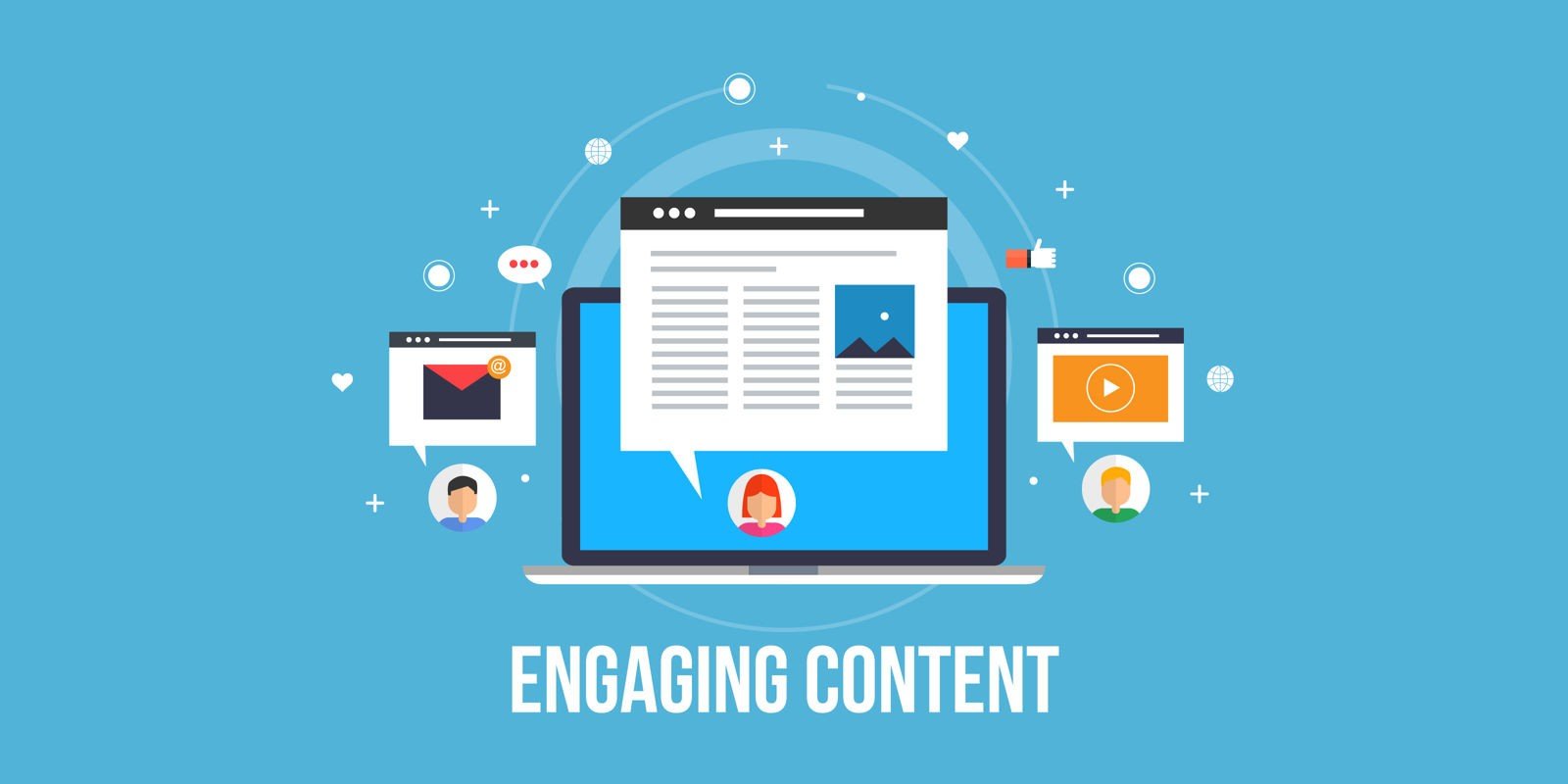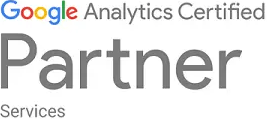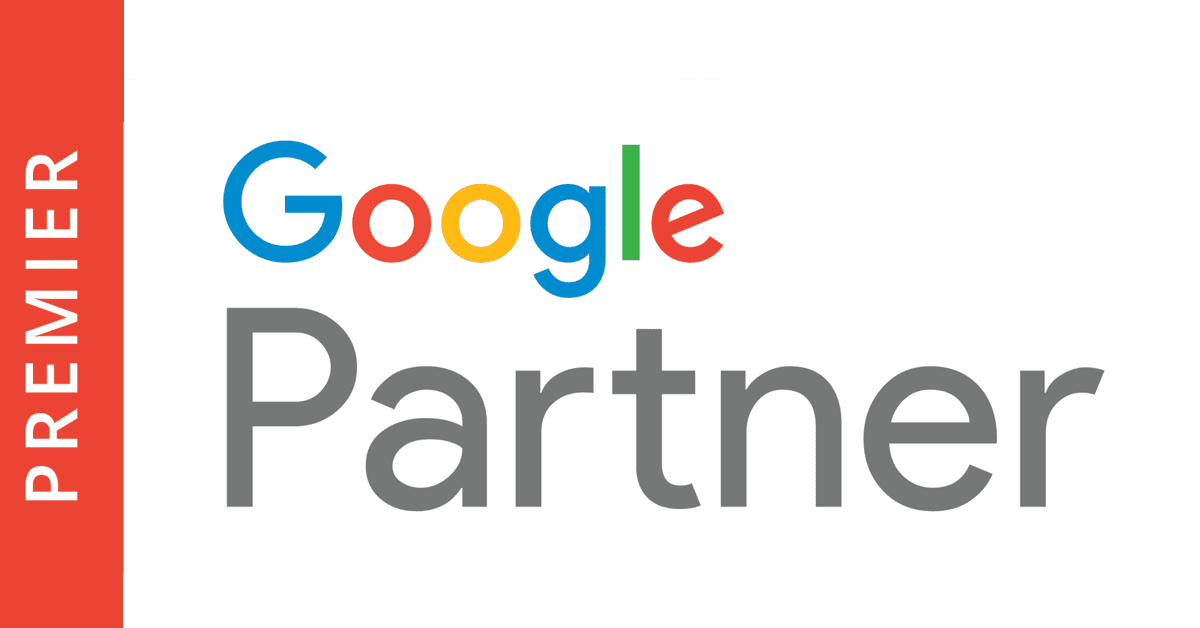It’s no longer a far-off future from science fiction – the age of AI is here.
Artificial Intelligence (AI), Machine Learning (ML) and the insights and services offered by Big Data are spearheading revolutionary change in various industries. Marketing departments must now shake up their operating processes and the tools they rely on to analyse real-time customer metrics to run campaigns that convert.
To advance their operations and stay ahead of digital marketing trends, digital agency teams and business owners alike are choosing AI and ML technology to develop next-generation marketing techniques that use advanced metrics to make the customer central to campaigns.
What is Artificial Intelligence (AI) Marketing?
The term ‘AI’ refers to any simulation of human intelligence by machines like sophisticated computer systems. The AI process can encompass an array of learning, reasoning and self-correction tasks, generating lightning-fast responses in hyper-realistic ways.
In the context of digital marketing, AI can analyse data from various sources, understand patterns, and generate insights that can help businesses not only make more informed decisions, but create professional, effective content and marketing materials at a far greater scale.
What is Machine Learning (ML) Marketing?
Machine Learning is, essentially, a subset of AI, built upon a series of clever algorithms and statistical models that computer systems can use to perform a task without using explicit instructions from us humans, relying instead on previous patterns and inference. Computer applications can recognise and learn from acquired patterns in data, integrating with diverse programs to accelerate their abilities without human intervention or assistance.
What is AI & ML in Digital Marketing?
Advanced Personalisation
Marketing departments should always be looking for new and better ways to engage with their target audience. Through AI and ML, marketing directors can now analyse vast amounts of data in real time to understand their customers’ preferences, behaviours, and buying patterns. From here, they can overcome common issues by automating publishing, communication, and highly personalised marketing campaigns, generating content that resonates with a target audience.
For example, an e-commerce website can use AI algorithms to analyse a customer’s browsing history, past purchases, and even social media interactions to recommend products that are most likely to be of interest to them.
What’s more, with ML integration, marketing programs can now collect and store massive amounts of data while analysing patterns.
Personalisation Tool Examples
Both advanced technologies are being integrated into multiple e-commerce and marketing solutions these days. All you need is to pick one! Here are a few examples:
- Monetate offers intelligent personalisation and individualised product recommendations.
- Apptus is an AI-powered platform that can predict and advertise the right products to customers at the right time.
- Optinmonster offers personalised CTAs and exit popups.
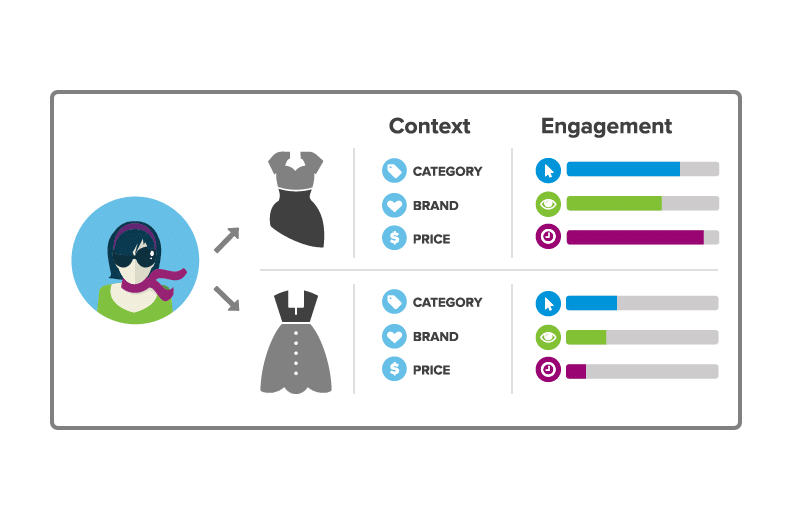
Natural Language Generation
Natural Language Generation (NLG) is a branch of AI focusing on creating – and mimicking – human-like text or speech, which can prove impactful in the future of content creation and social media marketing. NLG uses carefully created algorithms to automatically generate blog posts, social media updates, or even entire websites based on a set of predefined criteria. This not only saves time and resources but also ensures that the content is optimised for SEO and is consistent with the brand’s voice and messaging.There are a few ingenious and user-friendly NLG tools available, including Amazon Polly, that turns text into lifelike speech, allowing anyone to create applications that talk directly to their customer:
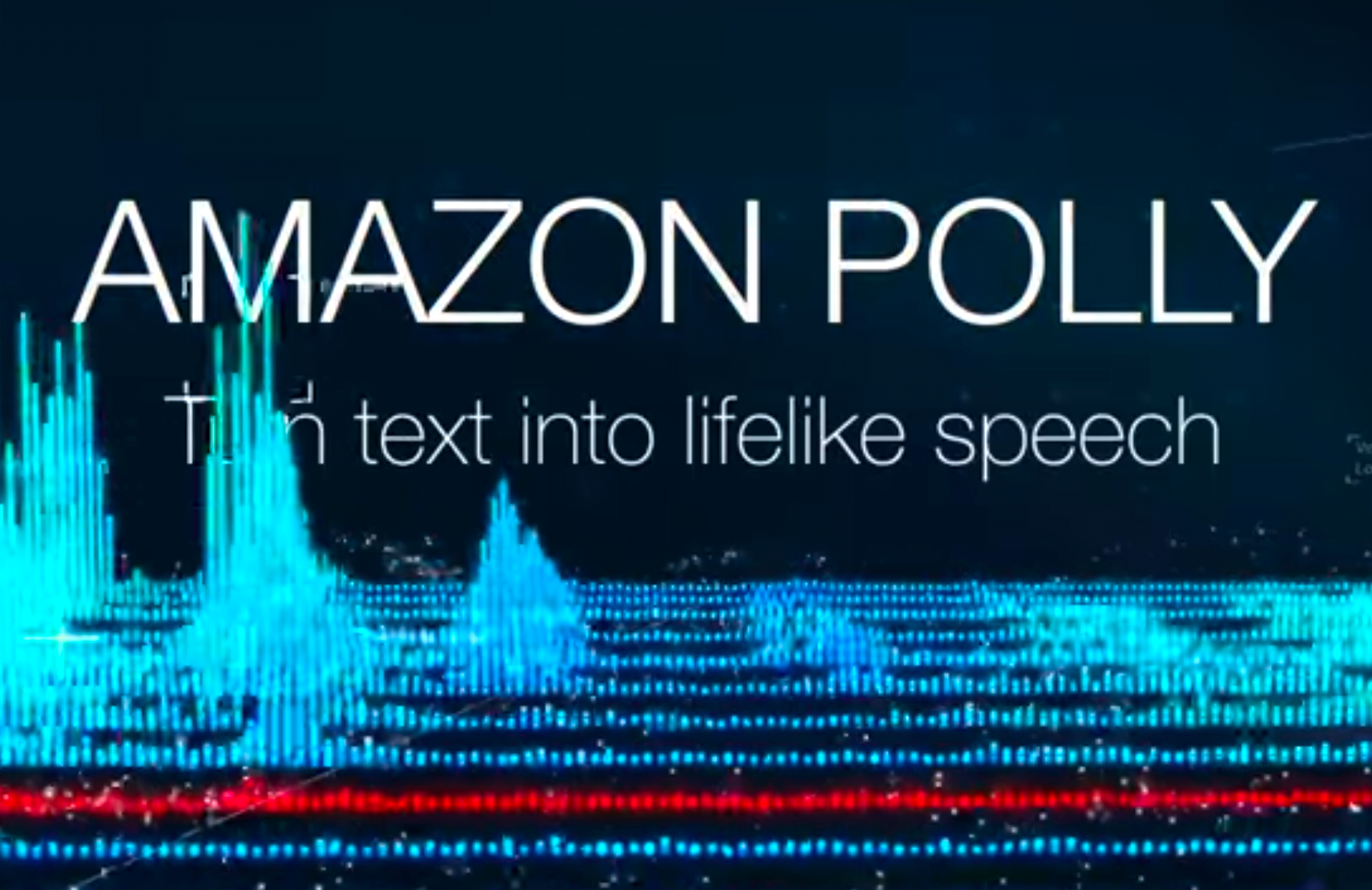
Google Cloud Text-to-Speech is another example of AI revolutionising the future of digital marketing, offering a selection of 30 voices and multiple languages.
Influencer Marketing Platforms
The use of digital marketing AI tools is growing ever more popular, even when it comes to automating partnerships with influencers (people with significant followings promoting products and services to influence potential buyers on social media), working with them to increase brand awareness.
Using NLP, marketers can now process every influencer post and analyse the data to determine the benefits a specific influencer brings to their brand. These algorithms analyse various factors, such as the influencer’s reach, engagement rate, and the relevance of their content to the brand’s products or services. They can also predict and estimate an influencer’s potential performance regarding a particular brand objective. Doing so helps businesses to optimise their influencer marketing campaigns and achieve better results.
Sentiment Analysis
Sentiment analysis software powered by AI is another of the emerging digital marketing trends, allowing teams to identify online mentions of the brand that require attention.
Sentione is one example of sentiment analysis software utilising Machine Learning and natural language mechanisms to find online content centred on a brand. It is able to prioritise the found mentions across social media and other online platforms based on how urgent or important they are, analysing the context and the sentiment.
Sentione also includes a self-learning agent that recommends other actions based on the observed data and the marketer’s previous communication with clients.
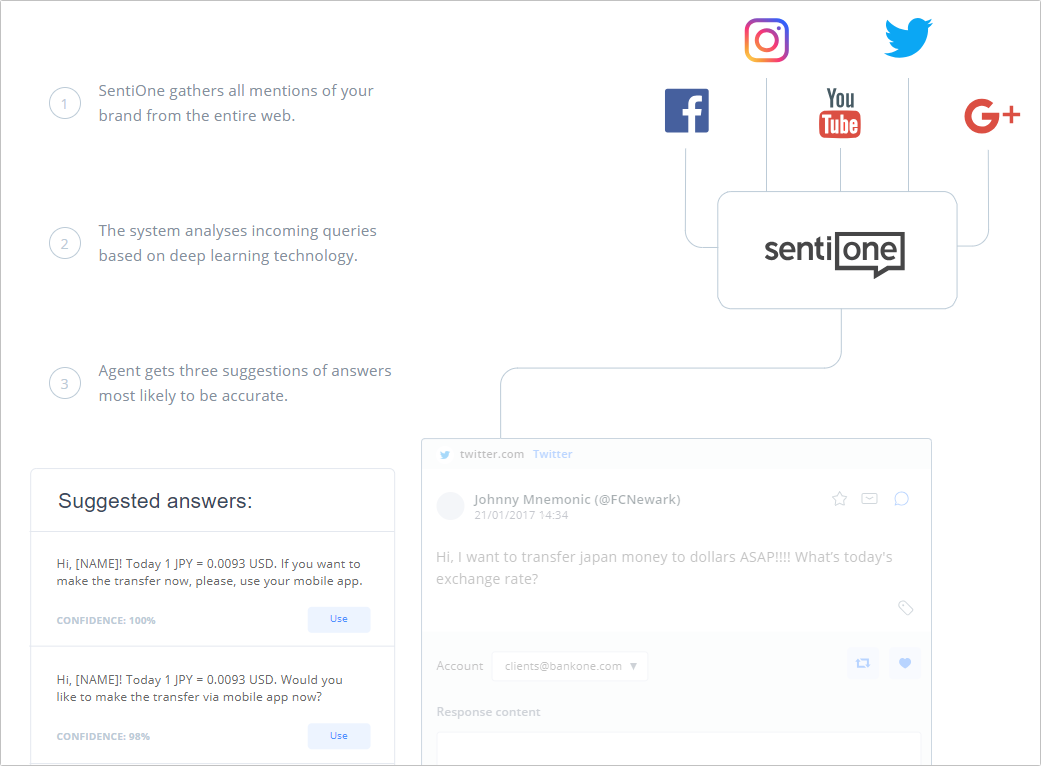
Customer Support and Conversions
Customer service is crucial for a good experience, brand management and awareness, but providing quick responses to their questions can create a massive drain on staff resources. Fortunately, brands can now implement sophisticated AI-driven chatbots to help answer FAQs, suggest sales, and direct customers on their next step while freeing up human resources to focus on more complex tasks.
In fact, a 2016 study found that 45% of consumers say they are more willing to pay a higher price to a company with better customer service.
Implementing AI-powered chatbots into customer service and marketing plans allows basic and common enquiries to be answered automatically via live chat, saving customers from phoning a call centre and sitting on hold for an interminable amount of time.There are already a few powerful players in chatbot marketing. Both Botsociety and Mobile Monkey provide powerful features to build smart chatbots that can talk to your customers on your behalf, helping them when your team is not around:
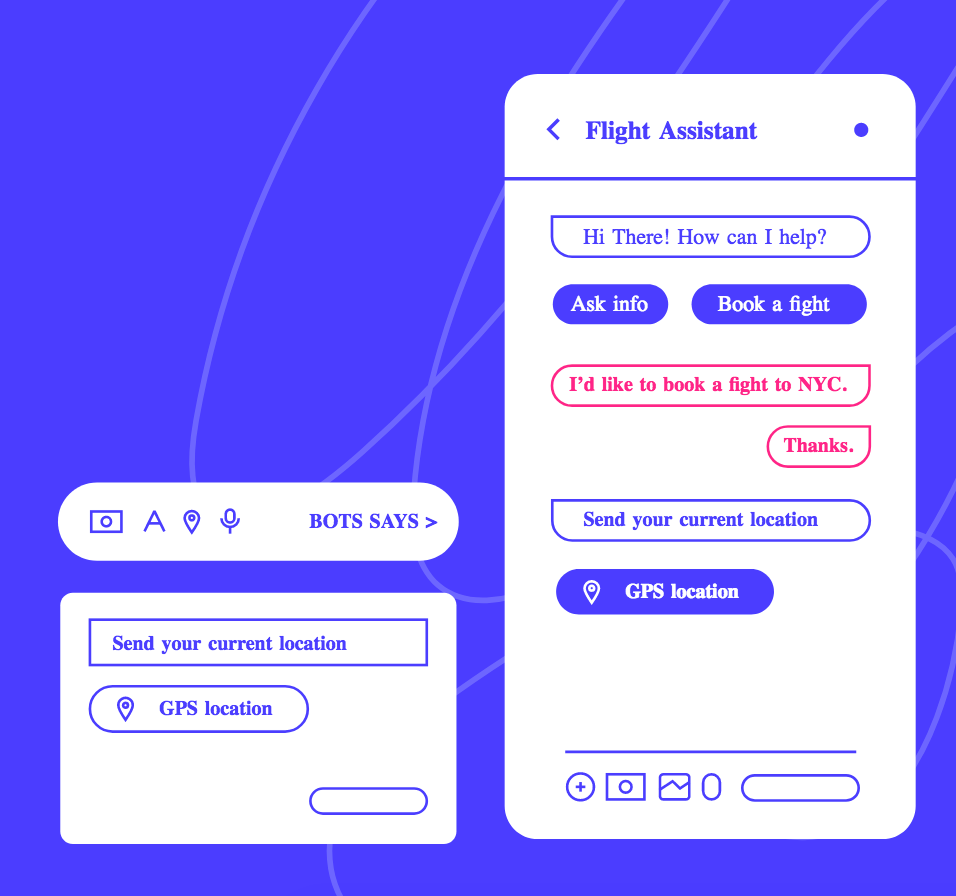
Machine Learning is advancing at a rapid pace and will only improve over time by gathering feedback from each customer interaction.
Prepare for the Future of Digital Marketing Trends with AI
AI-powered tools let companies learn who their customers are, what drives them to a website, and what they buy (and why). AI allows a deep dive into customer-centric data and identifies their target audience. These tools also include integration into live chat through chatbots that engage customers, timely answering their enquiries in an easy-to-use interface.
Artificial Intelligence and Machine Learning will soon be integrated into almost every aspect of a business. By using this technology, brands will increase their brand awareness and grow a positive online image through customised interactions with customers.For information on how a modern digital agency in Melbourne can help you incorporate personalised marketing & AI tools, natural language generation, influencer marketing platform options and more, please contact us at Digital Eagles today.











